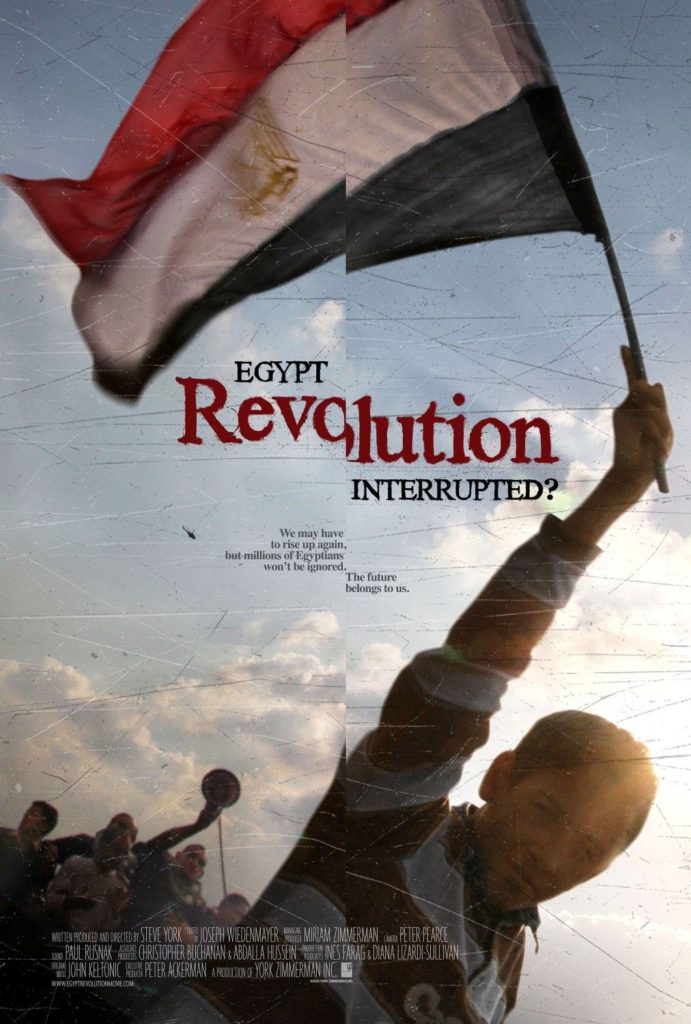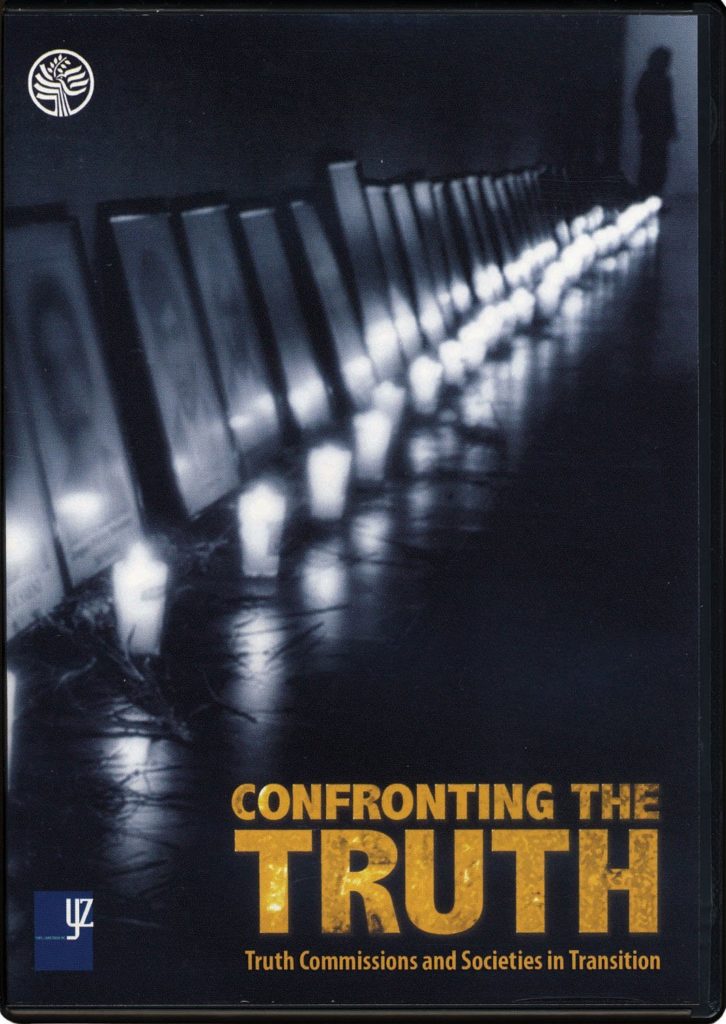- Selected Works of Peter Ackerman
- The Checklist to End Tyranny
- Preventing Mass Atrocities
- A Force More Powerful
- Strategic Nonviolent Conflict
- Documentary Films Supported by Peter Ackerman
- A Force More Powerful
- Bringing Down a Dictator
- Orange Revolution
- Confronting the Truth
- Egypt: Revolution Interrupted?
Selected Works of Peter Ackerman
The Checklist to End Tyranny
The Checklist to End Tyranny: How Dissidents Will Win 21st Century Civil Resistance Campaigns
By Peter Ackerman
Date of Publication: October 2021
Free Download: Free Download: English | Arabic | Chinese | Farsi | Korean | Polish | Spanish
Purchase an e-book
Request a Complimentary Paperback
Purchase an e-book (Nook | Kindle)
The Checklist to End Tyranny enables dissidents to become more strategic in their thinking and more skillful in their quest to win civil resistance campaigns in the 21st century.
Over a century of data shows that civil resistance campaigns—employing strikes, boycotts, mass protests, and many other nonviolent tactics—are the most powerful means for societies to confront authoritarians and achieve democracy and human rights.
If the world is to have a Fourth Democratic Wave expanding freedom over oppression, then pro-democracy activists waging civil resistance campaigns will lead the way.
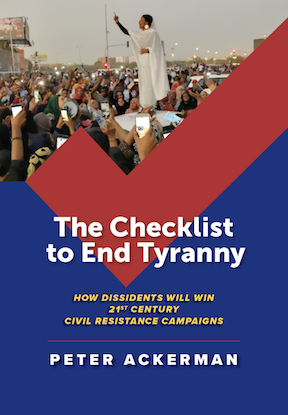
Preventing Mass Atrocities
Preventing Mass Atrocities: From a Responsibility to Protect (RtoP) to a Right to Assist (RtoA) Campaigns of Civil Resistance
By Peter Ackerman and Hardy Merriman, May 2019
Free Download: English | Arabic | French | Spanish
Purchase a Print Copy
Purchase e-book (Nook | Kindle)
Events of the last decade demand new approaches to atrocity prevention that are adaptable, innovative and independent of a state-centered doctrine. With the aim of reducing risk factors such as civil war, we argue for a new normative framework called The Right to Assist (RtoA), which could strengthen international coordination and support for nonviolent civil resistance campaigns demanding rights, freedom and justice against non-democratic rule.
RtoA would: 1) engage a wide range of stakeholders such as NGOs, states, multilateral institutions and others; 2) bolster various factors of resilience against state fragility; and 3) incentivize opposition groups to sustain commitment to nonviolent strategies of change. The adoption of this doctrine can reduce the probability of violent conflict that significantly heightens atrocity risk, while increasing the prospects for constructive human development.
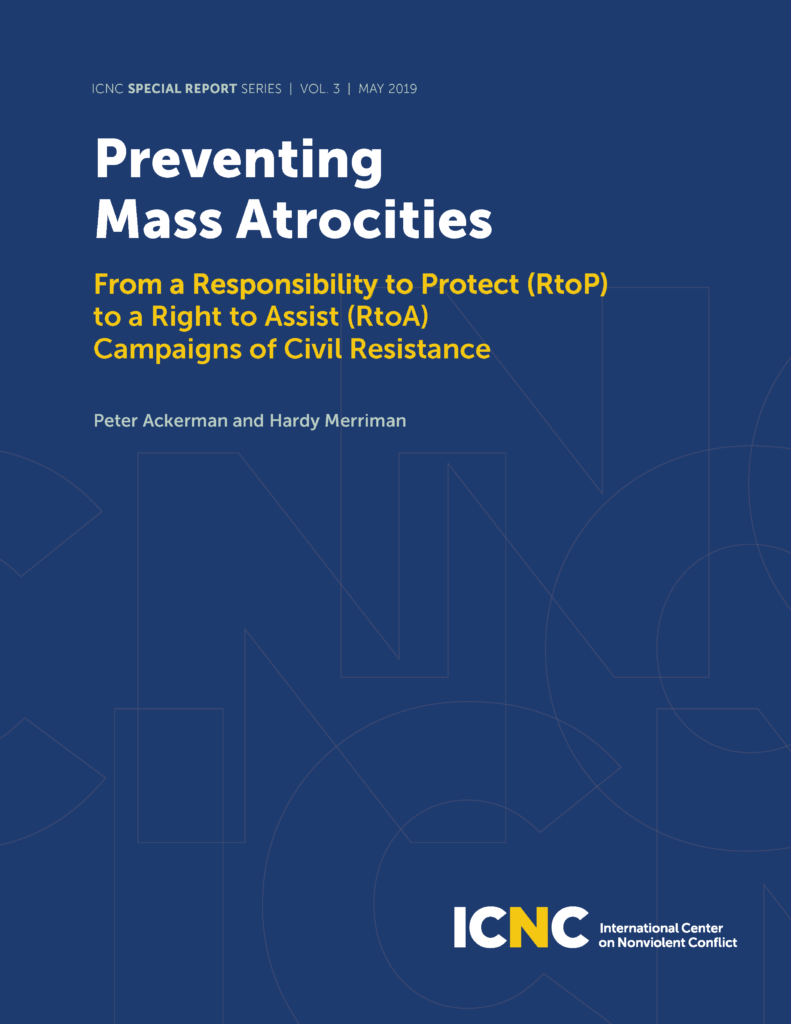
A Force More Powerful
A Force More Powerful: A Century of Nonviolent Conflict
by Peter Ackerman and Jack DuVall
St. Martin’s Press, 2000
Hardback: St. Martin’s Press — 2000
Paperback: Palgrave — 2001
Purchase the Book
This nationally-acclaimed book shows how popular movements used nonviolent action to overthrow dictators, obstruct military invaders and secure human rights in country after country, over the past century. Peter Ackerman and Jack DuVall depict how nonviolent sanctions–such as protests, strikes and boycotts–separate brutal regimes from their means of control. They tell inside stories–how Danes outmaneuvered the Nazis, Solidarity defeated Polish communism, and mass action removed a Chilean dictator–and also how nonviolent power is changing the world today, from Burma to Serbia.
Also see the companion film.
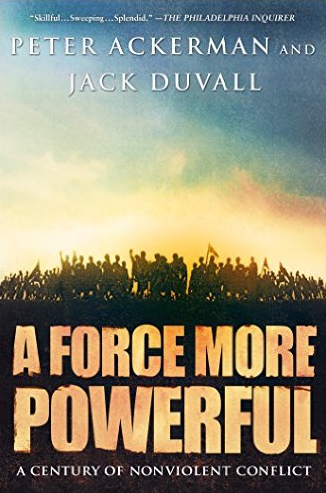
Strategic Nonviolent Conflict
Strategic Nonviolent Conflict: The Dynamics of People Power in the Twentieth Century
by Peter Ackerman and Christopher Kruegler
Praeger Publishers, 1994
Purchase the Book
Nonviolent action, well planned and implemented, is shown in this lucid, timely, and compelling work to effect dramatic outcomes against opponents utilizing violence. Ackerman and Kruegler recognize that not all nonviolent efforts meet with success and they are careful to stress that a nonviolent approach involves great risks as well as opportunities. It is the effectiveness of the strategies employed which will determine whether those using nonviolent means can prevail against opponents who rely on violence in pursuit of objectives. Twelve principles of strategic nonviolence are established in this book–they serve as a conceptual foundation and enhance the prospects of success in nonviolent campaigns of resistance.
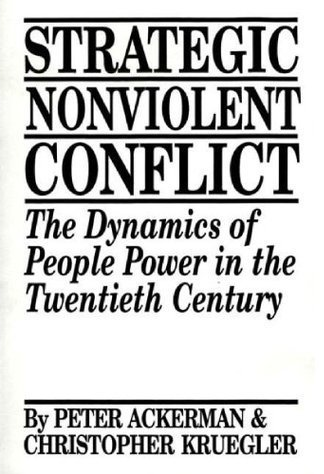
Documentary Films Supported by Peter Ackerman
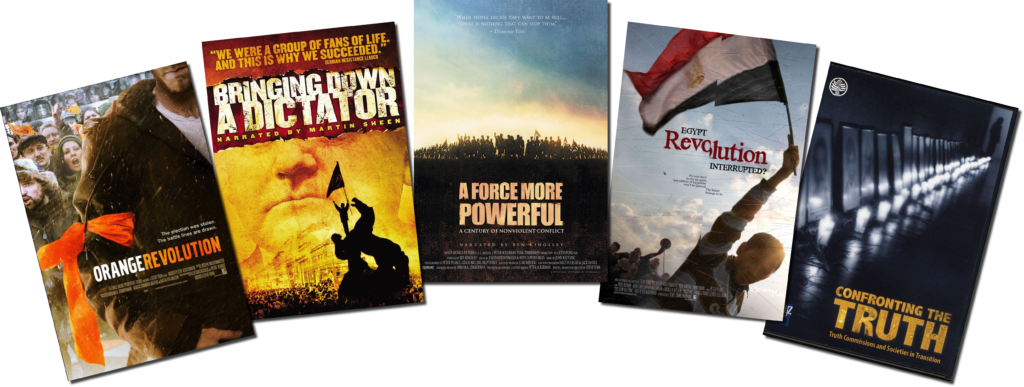
Five critically acclaimed documentary films on civil resistance are available for free streaming, in English and over 20 other languages.
A Force More Powerful
The Emmy-nominated documentary exploring civil resistance campaigns in India, the United States, South Africa, Poland, Denmark and Chile.
“Outstanding… a veritable manual on how to mount a successful nonviolent resistance movement….” –The Los Angeles Times
Watch this film in English.
Watch the film trailer.
This film is available in:
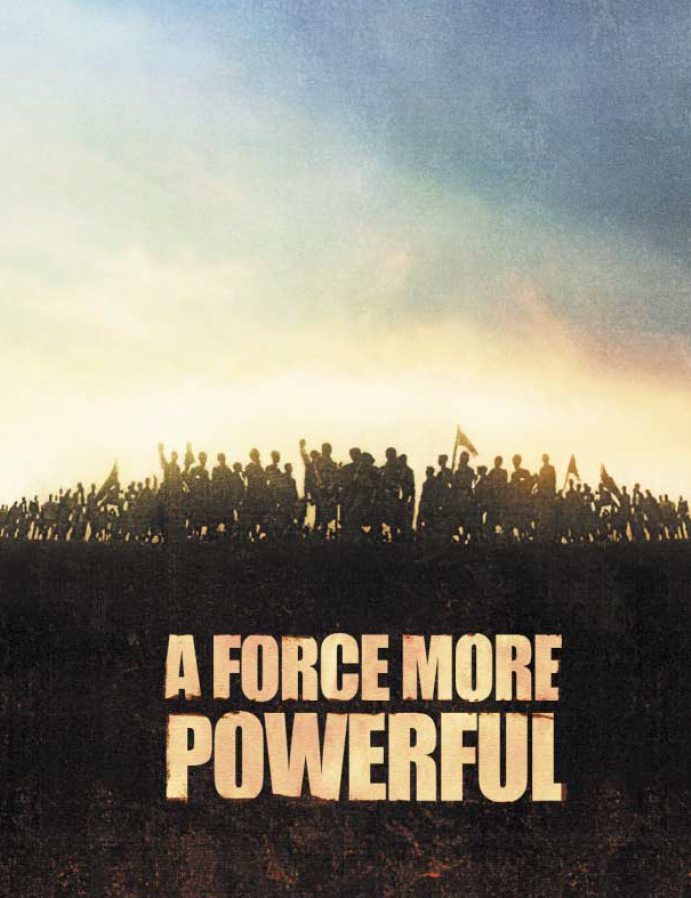
Bringing Down a Dictator
The award-winning documentary chronicling the student-led Otpor! Movement that led to the ouster of dictator Slobodan Milosevic.
“A priceless history lesson… succeeds most intriguingly as a how-to manual for revolution via civil disobedience. Grade A.” –Entertainment Weekly
Watch this film in English.
This film is also available in:
| Arabic | Spanish | |
| Brazilian Portuguese | Swahili | |
| Burmese | Tagalog | |
| Chinese | Thai | |
| Farsi | Tibetan | |
| French | Turkish | |
| Hebrew | Urdu | |
| Hungarian | Uzbek | |
| Indonesian | Vietnamese | |
| Polish | Russian |
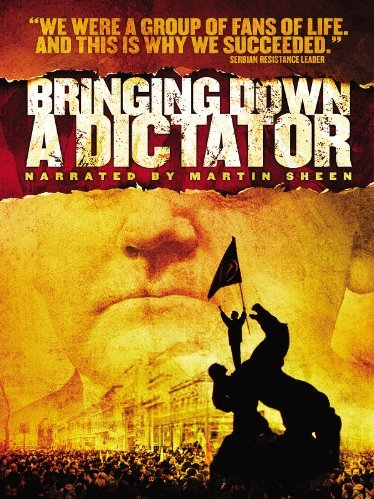
Orange Revolution
The acclaimed documentary recounting 17 days of nonviolent civil resistance by the people of Ukraine against their chronically corrupt government.
“[A] timely and fascinating look at grassroots democracy in action.”
–Chicago Reader
Watch this film in English.
Watch the film trailer.
This film is also available in:
| Arabic | Spanish |
| Chinese | Ukrainian |
| Farsi | Vietnamese |
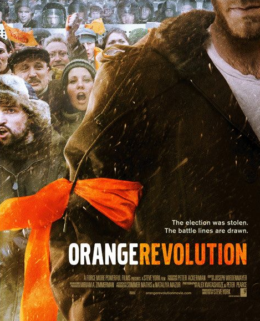
Confronting the Truth
Egypt: Revolution Interrupted?
In 2011 Egyptians rose up against their president. They removed him. But they didn’t get what they expected.
This film traces the revolution in Egypt and its aftermath. Drawing on extensive interviews of activists, organizers, and others who were active on the ground, it offers lessons on political transitions, dictatorship, and democratic change.
Watch this film in English.
Watch the film trailer.
This film is also available in:
| Dari | Mandarin |
